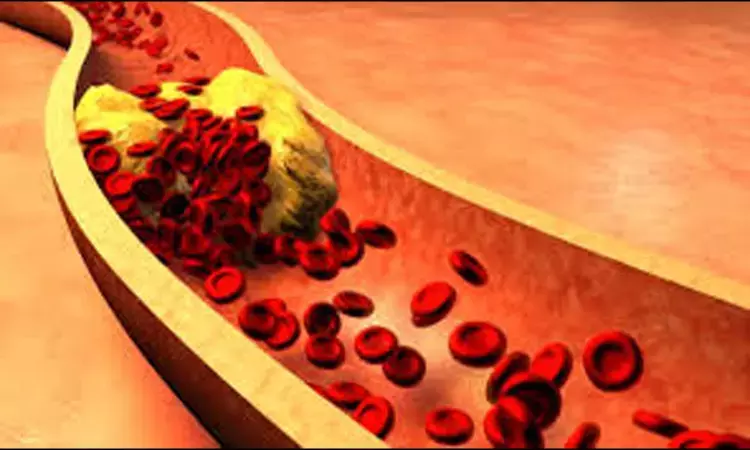- Home
- Medical news & Guidelines
- Anesthesiology
- Cardiology and CTVS
- Critical Care
- Dentistry
- Dermatology
- Diabetes and Endocrinology
- ENT
- Gastroenterology
- Medicine
- Nephrology
- Neurology
- Obstretics-Gynaecology
- Oncology
- Ophthalmology
- Orthopaedics
- Pediatrics-Neonatology
- Psychiatry
- Pulmonology
- Radiology
- Surgery
- Urology
- Laboratory Medicine
- Diet
- Nursing
- Paramedical
- Physiotherapy
- Health news
- Fact Check
- Bone Health Fact Check
- Brain Health Fact Check
- Cancer Related Fact Check
- Child Care Fact Check
- Dental and oral health fact check
- Diabetes and metabolic health fact check
- Diet and Nutrition Fact Check
- Eye and ENT Care Fact Check
- Fitness fact check
- Gut health fact check
- Heart health fact check
- Kidney health fact check
- Medical education fact check
- Men's health fact check
- Respiratory fact check
- Skin and hair care fact check
- Vaccine and Immunization fact check
- Women's health fact check
- AYUSH
- State News
- Andaman and Nicobar Islands
- Andhra Pradesh
- Arunachal Pradesh
- Assam
- Bihar
- Chandigarh
- Chattisgarh
- Dadra and Nagar Haveli
- Daman and Diu
- Delhi
- Goa
- Gujarat
- Haryana
- Himachal Pradesh
- Jammu & Kashmir
- Jharkhand
- Karnataka
- Kerala
- Ladakh
- Lakshadweep
- Madhya Pradesh
- Maharashtra
- Manipur
- Meghalaya
- Mizoram
- Nagaland
- Odisha
- Puducherry
- Punjab
- Rajasthan
- Sikkim
- Tamil Nadu
- Telangana
- Tripura
- Uttar Pradesh
- Uttrakhand
- West Bengal
- Medical Education
- Industry
Triglyceride glucose index superior to modified TyG indices for predicting cardiovascular diseases: Study

China: In the quest for more accurate predictors of cardiovascular disease (CVD) risk, researchers in China have turned their attention to the triglyceride glucose index (TyG index) and its modified counterparts. A recent study comparing these indices has revealed intriguing findings regarding their effectiveness in predicting CVD risk among middle-aged and older Chinese adults.
The researchers found that TyG and TyG-waist-to-height ratio (WHtR) are significantly associated with new-onset CVDs, and the TyG outperformed the modified TyG indices to identify individuals at risk of an incident cardiovascular event.
The findings, published in Cardiovascular Diabetology, support the superiority of the TyG index over the modified TyG indices using obesity-related parameters for risk stratification and predicting future cardiovascular disease (CVD).
Cardiovascular diseases, including heart disease and stroke, are leading causes of mortality worldwide, with risk factors such as obesity, diabetes, and dyslipidemia playing significant roles. Traditional risk assessment tools rely on factors like cholesterol levels and blood pressure measurements. However, emerging evidence suggests that novel biomarkers, such as the TyG index, may offer additional insights into cardiovascular risk.
The triglyceride and glucose (TyG) index, a surrogate marker of insulin resistance, has been validated as a predictor of CVD. However, the effects remain unknown of TyG-related indices combined with obesity markers on CVD. Therefore, Zhonghang Xu, China-Japan Union Hospital of Jilin University, Jilin University, Jilin, China, and colleagues aimed to investigate the associations between the TyG index and modified TyG indices with new-onset cardiovascular disease and the time-dependent predictive capacity using a nationally representative cohort.
For this purpose, the researchers conducted a retrospective observational cohort study using China Health and Retirement Longitudinal Study (CHARLS) data of 7 115 participants. The TyG index was calculated as Ln [fasting triglyceride (mg/dL) × fasting glucose (mg/dL)/2].
The modified TyG indices were developed by combining TyG with waist circumference (WC), body mass index (BMI), and waist-to‐height ratio (WHtR). Adjusted Cox proportional hazards regression was used to analyze the association and predictive capacity based on hazard ratio (HR) and Harrell’s C‐index.
Based on the study, the researchers reported the following findings:
· Over a 7-year follow‐up period, 2136 participants developed cardiovascular disease, including 1633 cases of coronary heart disease and 719 cases of stroke.
· Compared with the lowest tertile group, the adjusted HR for new-onset cardiovascular disease in the highest tertile for TyG, TyG-BMI, TyG-WHtR, and TyG-WC were 1.215, 1.073, 1.112, and 1.078, respectively.
· The C‐indices of the TyG index for cardiovascular disease onset were higher than other modified TyG indices.
· Similar results were observed for coronary heart disease and stroke.
In conclusion, the study highlights the potential of the triglyceride glucose index and its modified versions as valuable tools for predicting cardiovascular disease risk in middle-aged and older Chinese adults. By refining risk assessment strategies, these indices could ultimately contribute to more effective prevention and management of cardiovascular diseases, reducing the burden of these conditions on public health.
Reference:
Cui, C., Qi, Y., Song, J. et al. Comparison of triglyceride glucose index and modified triglyceride glucose indices in prediction of cardiovascular diseases in middle aged and older Chinese adults. Cardiovasc Diabetol 23, 185 (2024). https://doi.org/10.1186/s12933-024-02278-z
Dr Kamal Kant Kohli-MBBS, DTCD- a chest specialist with more than 30 years of practice and a flair for writing clinical articles, Dr Kamal Kant Kohli joined Medical Dialogues as a Chief Editor of Medical News. Besides writing articles, as an editor, he proofreads and verifies all the medical content published on Medical Dialogues including those coming from journals, studies,medical conferences,guidelines etc. Email: drkohli@medicaldialogues.in. Contact no. 011-43720751


